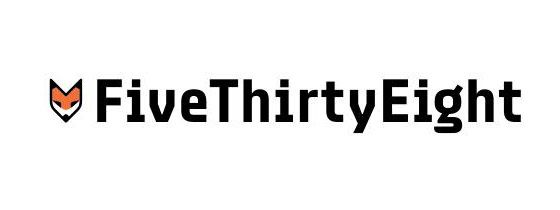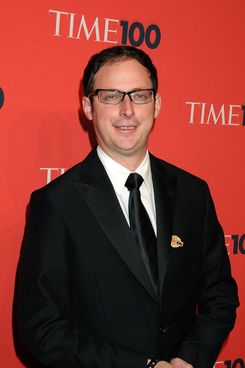
Stats superstar Nate Silver hates the term “data-driven.” He also hates the work of just about every popular columnist at all of the major newspapers, including his former employer, the New York Times. But he loves burritos. On March 17, Silver will deliver his fix — yes, it’s data-driven — for the world of journalism in the form of a new FiveThirtyEight, now owned and operated by ESPN (and its parent company, Disney-ABC). Along with covering his signature topics of sports and politics, Silver’s staff aims to apply an accessible, quantitative approach to economics, science, and the catch-all topic “lifestyle.” Also, Mexican food.
Ahead of the launch, he talked to Daily Intelligencer about learning how to be a manager, his problem with “hedgehogs,” and how hard it is to hire women.
Are things still on schedule for Monday? What percentage ready are you?
That’s certainly the plan. The thinking here is we’re 75 or 80 percent ready, but the thing is, if we waited another month, we’d still just be 80 or 85 percent ready. You’re going to make some mistakes once you launch that you can’t really deal with until you actually have a real product. It’s like playing poker for no money — you can learn some elements of strategy, but unless your neck is on the line, you’re not going get over that final 20 percent of tough stuff you have to learn.
How are you spending these final days?
Basically having a lot of meetings and making sure everyone is staying sane. I also have to write this big, kind of thought-piece-y thing introducing the site, and I’ve been procrastinating on that for as long as I possibly can. We also have to get the NCAA tournament projections ready. That’s a little bit of a crash schedule on Sunday because we want to get it up by at least Monday afternoon, and there’s a lot data to filter in, which we can’t do until we know what the 68-team field is. Sunday is going to be a long night.

Can you explain the mythology behind the new fox logo?
The fox logo comes from a quote which was originally attributable to an obscure Greek poet: “The hedgehog knows one big thing and the fox knows many little things.” The idea being that we’re a lot of scrappy little nerds and we have different data-driven — I hate data-driven as a term — but data journalism takes on a lot of different forms for us. Often, yeah, it does mean numbers and statistics as applied to the news, but it also means data visualization, reporting on data that is both numerate and literate; down the road, it came mean investigative journalism. It can mean building models and forecasts and programs. At the same time, it’s still data journalism. It’s not enough just to be smart. There’s a particular series of methods and a way of looking at the world.
Plenty of pundits have really high IQs, but they don’t have any discipline in how they look at the world, and so it leads to a lot of bullshit, basically. We think about our philosophy for when we choose to run with a story or when we don’t. We talk about avoiding “smart takes,” quote-unquote. This is data journalism, capital-D. Within that, we take a foxlike approach to what data means. It’s not just numbers, but numbers are a big part of this. We think that’s a weakness of conventional journalism, that you have beautiful English language skills and fewer math skills, and we hope to rectify that balance a little bit.
So if you all are the foxes, who’s a hedgehog?
Uhhhh, you know … the op-ed columnists at the New York Times, Washington Post, and Wall Street Journal are probably the most hedgehoglike people. They don’t permit a lot of complexity in their thinking. They pull threads together from very weak evidence and draw grand conclusions based on them. They’re ironically very predictable from week to week. If you know the subject that Thomas Friedman or whatever is writing about, you don’t have to read the column. You can kind of auto-script it, basically.
It’s people who have very strong ideological priors, is the fancy way to put it, that are governing their thinking. They’re not really evaluating the data as it comes in, not doing a lot of [original] thinking. They’re just spitting out the same column every week and using a different subject matter to do the same thing over and over.
It’s ridiculous to me that they undermine every value that these organizations have in their newsrooms. It’s strange. I know it’s cheaper to fund an op-ed columnist than a team of reporters, but I think it confuses the mission of what these great journalistic brands are about.
Are there any notable exceptions out of the crop you just named?
There are some people I like more than others. I think Ross Douthat is someone who shows some originality. He seems to approach each topic freshly, where he has certain kind of semi-conservative views, but he doesn’t let this get in the way of thinking in an interesting way about a subject.
So you’re on the record about hating most pundits and columnists and the big proclamations and narratives that come with them. There’s been no shortage of those directed at you in the lead-up to the site. What do you see as the big false narratives surrounding FiveThirtyEight at the moment?
One thing that’s a little false is that people think this is all about predictions. That’s a part of it, but not most of it, really. That’s really just one tool in our arsenal. We think the first step in using data is that you have to collect data, you have to organize it, and you have to explain the relationships. Only then, in rare cases, do you feel like you have a good enough understanding to generalize it into predictions about the way the world really works.
People also think it’s going to be a sports site with a little politics thrown in, or it’s going to be a politics site with sports thrown in. I understand why people say that — what we’ve been known for, plus ESPN, plus ABC News. But we take our science and economics and lifestyle coverage very seriously.

We are repositioning FiveThirtyEight away from being a politics site. It’s a data journalism site. Politics is one topic that sometimes data journalism is good at covering. It’s certainly good with presidential elections. But we don’t really see politics as how the site is going to grow. It’s very seasonal in terms of traffic. If you’re trying to get politics traffic outside of election years, you’re mostly looking toward hardcore partisans, and we, frankly, don’t want to write that content to appeal to hardcore partisan readers. Not to say we don’t have political views, but that’s not what we’re all about, really. The growth is in sports and economics and science. That said, we have another election coming up in November and 2016.
How do you feel about the initial comparisons to other sites that aren’t really off the ground yet — Vox, First Look Media, and The Upshot, the New York Times’ replacement for you?
It seems like we’re getting lumped together inappropriately. If you look at David Leonhardt’s thing — I love David to death, I think he’ll be great to read — but they said in his thing on The Upshot today, ‘We want to have data but not too much.’ And we’re like, no, we want to have lots of data. We want to have lots of numbers. They’re going to be presented in a way that’s approachable by a wide audience, but that’s the problem we’re trying to solve. We bring more different skill sets to this problem than I think at least many organizations do.
There was a column in the Guardian by Emily Bell yesterday citing that so far, there are six women on your 19-person editorial staff, and calling this new wave “a repackaging of the status quo with a very nice clubhouse attached.” Do you think about problems of representation in the team you’ve built?
About 85 percent of our applications come in from men. That worries us. At the same time, we’re hiring the best candidate for the position. But that’s one of the reasons why we take a long time and put a lot of effort into our hiring process, to make sure that we’re looking widely for the best possible candidates.
I’ll be honest — that piece, the grander point I don’t have any opinion about. I thought the notion about FiveThirtyEight … it upset me. We think a lot about the hiring process. The phrase “clubhouse chemistry” is an allusion to baseball, but the idea that we’re bro-y people just couldn’t be more off. We’re a bunch of weird nerds. We’re outsiders, basically. And so we have people who are gay, people of different backgrounds. I don’t know. I found the piece reaaaally, really frustrating. And that’s as much as I’ll say.
Did Bill Simmons of Grantland, which is also run independently under the massive ESPN umbrella, give you any advice about turning from an individual writer to more of a manager?
There are all these quote-unquote personal-brand sites and Grantland is the one that was ahead of the pack in terms of having two or three years under its belt. We learned a lot from them. One thing we learned is that it’s definitely possible to launch too soon.
He was realistic about the fact that for the first six months or a year, there’s no way around the fact that a lot of your time is going to be taken up with management tasks. I realized that before signing the deal with ESPN. That’s something I was willing to do — kind of eager to do in the sense that it’s something new for me and that makes it kind of challenging and fun.
Between tonight and tomorrow night, I have to write this 3,000-word piece. That’s really hard, because you’re using different parts of your brain when you’re in meetings all day. When I write, I’m very much in a manic state — lots of Red Bull, staying up late. Whereas management, it’s the opposite of that. It’s a good exercise.
How are you adapting?
My approach is that I treat my colleagues as peers. I’m not that much older than them — I’m younger than a couple of them, actually. It’s a very — not frat-boy, but collegial atmosphere, where we joke around a lot. We have pretty frank conversations about ideas. We have people in the office who are very good about telling me when I’m full of shit, which you’re gonna be a pretty high percentage of the time.
Do you worry that people in areas besides sports and politics – lifestyle, for instance – aren’t as amendable to the data-driven journalism you’re pursuing?
The thing about the other verticals, especially lifestyle, is that it’s so broad that we can pick and choose. Look, we want to have a degree of rigor in everything we do. But we’re aware that if we do a piece on True Detective, that can and should be a little bit more playful than something on the presidential election.
It’s not just pop-culture. We’re also interested in unpopular. Stuff around health, education, travel — not where is the best vacation destination, but how can you optimize on airfares. That kind of Consumer Reports-y, Wall Street Journal-y, hacker-y. I don’t know why service journalism gets such a bad name, but that’s where some of it is. Using data to help your everyday life or using data against people who are using data against you.
Speaking about your political coverage, ESPN’s Marie Donoghue was quoted in TIME saying, “We’re quite clear: we’re nonpartisan.” Are you worried about ESPN’s commitment to some maybe outdated concept of “neutrality”?
We’re not sociopaths, which means that we look at the world and have opinions. But we’re not trying to do advocacy here. We’re trying to just do analysis. We’re not trying to sway public opinion on anything except trying to make them more numerate. I would say we’re not going to do a ton of public-policy coverage. We think that space is pretty rich now with competition. I also think with something like the health-care bill, it’s going to take years to get a good sense of how that’s working and how it’s affecting the market.
Finally, can you give us any details on the much-anticipated burrito bracket, which goes back to a project you did way back in 2007?
We had a meeting yesterday of the burrito selection committee. [To PR woman] Can we say this, Amy? [PR: Are you going to say names?] I like how this is the first thing you’ve actually objected to [laughs]. I made very impolitic comments about the Guardian and and the Times …
I’m not ready to announce the names of people yet, but it involves famous food critics and famous chefs from all regions of the country who came together with ideas. The California region is brutal. It’s like the SEC of football, basically.
Where are you getting your burritos in Manhattan?
There are two places in Manhattan that got in. They will cause some controversy, I think. One other popular place, the committee didn’t feel so good about. I personally like Tres Carnes. I like really good flavorful burritos, the barbecue-Mexican fusion. It’s a little inconsistent, but on its best days it’s a really spectacular burrito.
Have you tried the Mission Cantina burrito yet?
So those are the two from New York — now I’m giving away too much. And the controversy was over Dos Toros. There’s also a place in the Bronx, which I can’t pronounce right, but the two in Manhattan are Tres Carnes and Mission Cantina.
This interview has been condensed and edited.





























